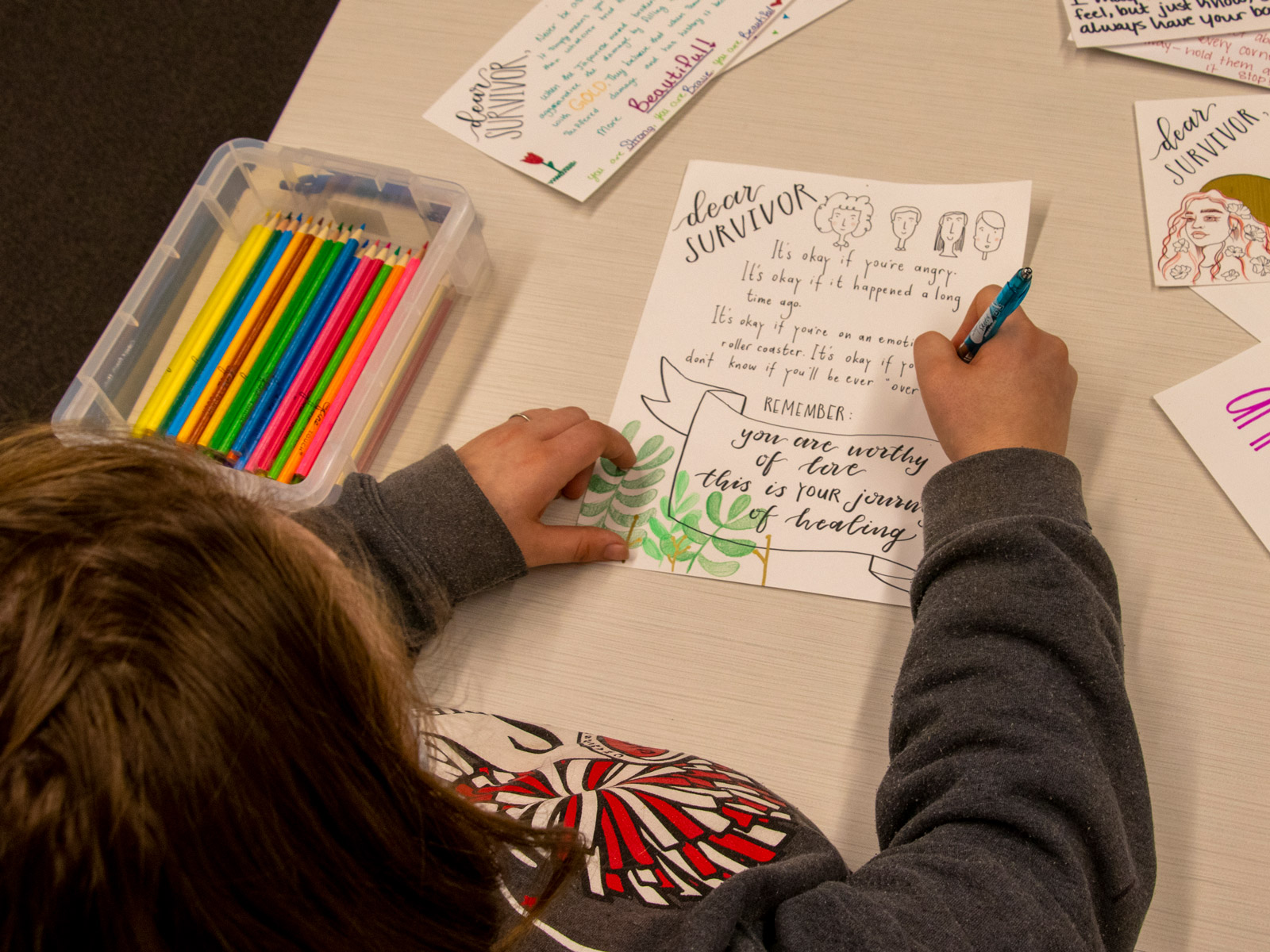Friday, April 1, 2022 6 Ways to get involved in Sexual Assault Awareness Month

April is Sexual Assault Awareness Month, designed to call attention to and prevent sexual assault, harassment and abuse. Campus events hosted by the Center for Advocacy, Response and Education (CARE) and student organizations during the month offer education around sexual consent, the impact of sexual violence and how to offer support for survivors.
Here are six ways you can participate in creating a brighter future and helping to end sexual violence:
Tuesday, April 5
Positive Affirmations Booth
10 a.m. to 2 p.m. | Nebraska Union Plaza
The Panhellenic Association invites the campus community to write positive affirmations to share with others. They'll also share fliers, stickers, buttons and more to bring awareness to Sexual Assault Awareness Month.
Wednesday, April 6
End Rape on Campus: Shine a Light of Support for Survivors
7:30 p.m. Bag Decorating | 8 p.m. Speakers begin at Nebraska Union Crib
Bring a friend and your passion for ending rape on college campuses. Stop by informational booths, grab some swag and write a message of support for survivors. You also can learn how to become further involved in efforts to end sexual violence on our campus. Speakers and a message of support for survivors will begin at 8 p.m.
Thursday, April 7 & 21
Know More Meetings
6 p.m. | Nebraska Union, Unity Room (212)
Get involved in this student organization committed to creating a community of students dedicated towards educating themselves and others on the realities of sexual assault. Attendees at meetings will discuss matters pertaining to sexual violence, form community and have meaningful discussions.
April 11-13
“What were you wearing?” Survivor Art Installation
118 Neihardt Center
It is never about clothing when sexual violence occurs. A display of outfits recreated based on those worn during assaults will be displayed with accompanying stories from sexual violence survivors. Inspired by the poem “What I Was Wearing” by Dr. Mary Simmerling, the project intends to shed light on the burden of self-blame brought forth by the question that is pervasive for most survivors and the inability to shed those clothes and the experience.
April 21
Sex, Power & Assault on Campus: A conversation for cultural change
7 p.m. | Lied Center | Register for a free ticket
Featuring Jennifer S. Hirsch, professor at Columbia University, and Shamus Khan, professor at Princeton University, authors of “Sexual Citizens: Sex, Power, and Assault on Campus,” this event will share research to spark a campus conversation around what can be done to prevent sexual violence on campus. You're invited to be part of this campus effort built on empathy and hope.
Sexual Citizens is based on years of research interviewing and observing college life – with students of different races, genders, sexual orientations, and socio-economic backgrounds. Hirsch and Khan’s landmark study reveals the social ecosystem that makes sexual assault so predictable, explaining how physical spaces, alcohol, peer groups, and cultural norms influence young people’s experiences and interpretations of both sex and sexual assault.
Wednesday, April 27
Pop-culture Trivia: Sexual Assault Awareness
7 p.m. | Nebraska Union, Ballrooms
Take a look at TV, movies, music and news related to sexual violence in the media. Wear jeans with a purpose as part of Denim Day, an annual event to support survivors and renew the commitment to education about sexual violence. There will be
snacks, drinks, prizes and a photo booth!
About Denim Day: Based on a court ruling from more than 20 years ago where the Italian Supreme Court overturned a rape conviction because the perpetrator claimed the victim’s jeans were so tight that she must have helped to get them off, implying consent, Denim Day calls attention to the importance of verbal consent and that it is never about the clothing. CARE invites everyone to participate by wearing denim and posting a photo on social media using the hashtag #unlsaam or tagging @care_at_unl on Instagram.
All events are open to the entire university community. Looking for more ways to get involved? Contact the Center for Advocacy, Response and Education (CARE) to find out how you can help educate peers on healthy relationships and consent.